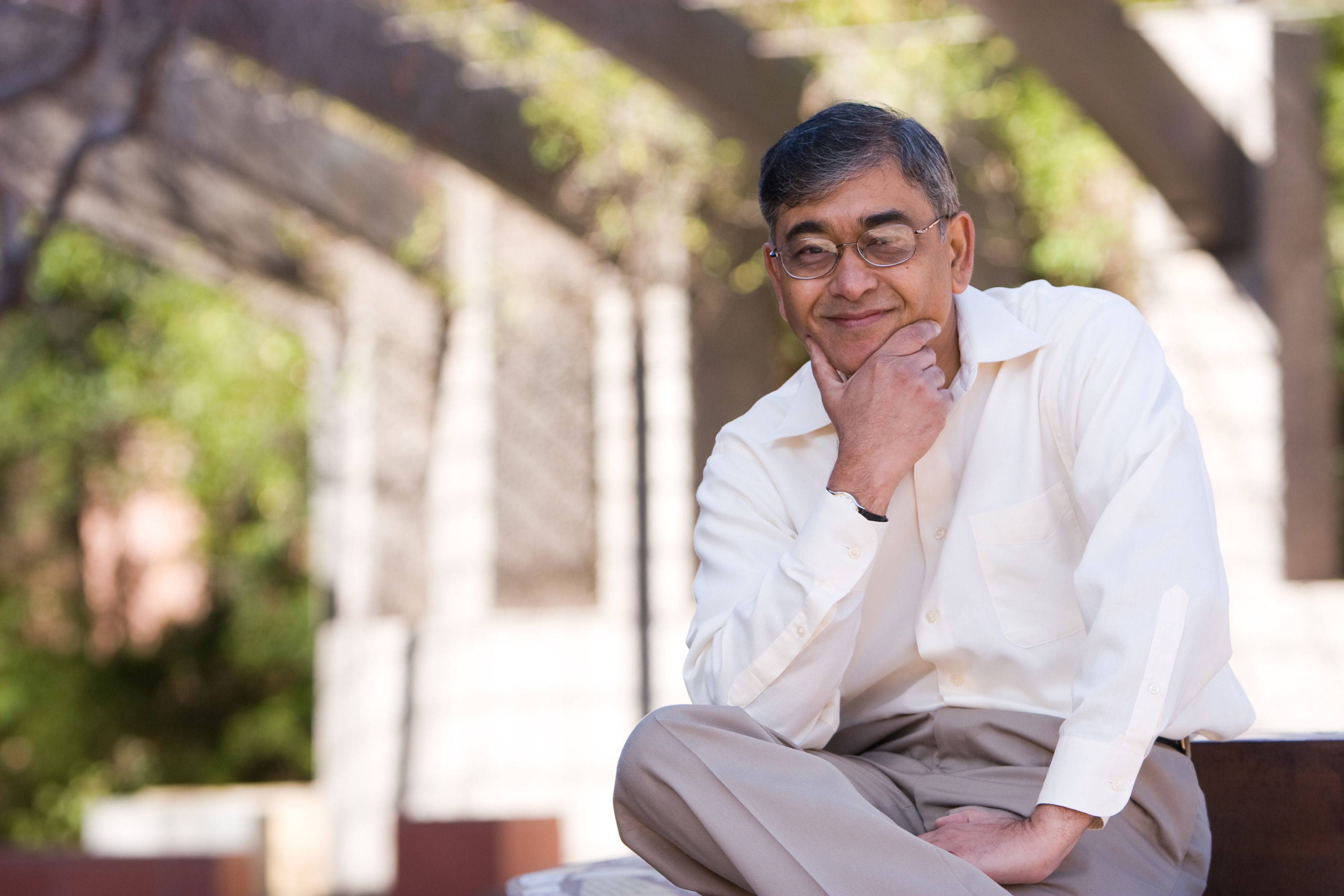
Masterful teaching: Flipping the classroom
Uday Kulkarni was honored with the W. P. Carey School’s Outstanding Graduate Teaching Award. He was one of the first professors to adapt classes from the Master of Science in Information Management program to online delivery — recording his lectures and creating new types of discussion boards. The next time he taught in the classroom, he found that the experience had changed the way he handles his in-person classes as well.
June 6, 2014 - Uday Kulkarni was honored with the W. P. Carey School’s Outstanding Graduate Teaching Award this spring. He was one of the first professors to adapt classes from the Master of Science in Information Management program to online delivery — recording his lectures and creating new types of discussion boards. The next time he taught in the classroom, he found that the experience had changed the way he handles his in-person classes as well.
Listen:
[podcast id="1"]
Read:
Uday Kulkarni says he could talk about teaching for hours; indeed teaching is his passion. This spring, Kulkarni was honored with the W. P. Carey School’s Outstanding Graduate Teaching Award. One of his students described him as an “extraordinary” professor, going on to say that Kulkarni makes his students take ownership of the learning experience.
Kulkarni has been on the faculty at the W. P. Carey School since 1988, and over the years has been instrumental in launching several master’s degree programs, including the Master of Science in Information Management, its online sibling and now the new Master of Science in Business Analytics. He was one of the first professors to adapt classes from the Master of Science in Information Management program to online delivery — recording his lectures and creating new types of discussion boards. The next time he taught in the classroom, he found that the experience had changed the way he handles his in-person classes as well.
Uday Kulkarni: Now when I started teaching the MSIM on-site course the next time again; I started leveraging the online technology into the evening MSIM class. So, I asked them to listen to my lectures before coming to class and attempt the discussion board forums before coming to class. Now I’ve found that as a result of doing that, by the time these students came to class, were so well-prepared with the topic that I didn’t have to teach them the material. I had to teach them the application and real, deep use of the material.
KnowWPCarey: The teaching approach Kulkarni describes has come to be known as flipping the classroom: students listen to the lectures, read and study at home. Class becomes the place to discuss the new knowledge they’ve acquired.
Kulkarni: This totally changed the depth of my teaching in class. So, what we created in the classroom is a total 100% engagement of every student and a creative application of the topics of the week to their work situations, which we all discuss.
KnowWPC: Kulkarni says he has a lot of respect for his students, all of whom are working full time — balancing jobs and families with school. Kulkarni is aware that the time they spend in the classroom costs more than just tuition.
Kulkarni: Everything that I say needs to make sense to them in terms of their world. If you can relate to that in the classroom, while it is going on through their minds, that’s the best thing you can do for them.
KnowWPC: The classroom becomes a safe place for students to discuss the issues they face at work, and how best to apply technology as solutions.
Kulkarni: So the way to do that is to specifically give them time in the classroom to reflect on their jobs with the topic in hand. You must create a safe atmosphere in the classroom for them to get it out as to how they think they can apply. And then have them and the other students comment on it continuously. Which, becomes a very rich experience for each of them.
KnowWPC: In the flipped classroom with its discussion format, many of the props of teaching just aren’t very useful anymore. For example, Kulkarni says he has no PowerPoints. But he is constantly changing the curriculum.
Kulkarni: It takes a long time to get to a point where you are happy with that, and I’m never happy because I’m a perfectionist. Technology is changing faster than we can handle it.
KnowWPC: Kulkarni knows that his students need deep knowledge of current technology and how to apply it. That alone isn’t enough, however, because as leaders they’ll have to discern where to take their organizations next.
Kulkarni: So I have to constantly educate them about how to investigate and research new things, and how to understand the code and context of the new. It’s not just the new that they need to learn; they need to figure out how to keep their knowledge clean.
Latest news
- Spring training brings baseball fans from around the country and their dollars to Phoenix area
Spring training is drawing baseball fans from across the country to the Phoenix area, where 15…
- Low mortgage rates keep owners in their houses longer
ASU expert weighs in on how historically low mortgage rates are keeping homeowners in their…
- Revamped teaching method captures attention of students
How I-MAC 2.0 turns leadership theory into interactive, high-impact learning.